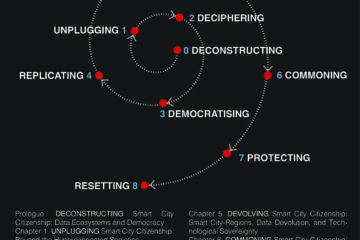
Who is afraid of ChatGPT? The Political Problem of AI
Sam Altman, co-founder of OpenAI, the company behind generative artificial intelligence model ChatGPT, released a statement on February 24th regarding the short-term and long-term prospects of their invention. Although well-intentioned, many technologists were perturbed by its tone – it felt as though Altman expected the world to change to suit the interests of the company, rather than the company opening itself up to social and political regulation to accommodate itself to our world. But what is ChatGPT and why is it causing concern? ChatGPT is arguably the first successful generative model of artificial general intelligence. As a large-language model, it offers several advantages over its competitors and predecessors. Firstly, ChatGPT is trained on a massive amount of data, a corpus …

Researching political abuse online is vital; how we measure it, even more so
Back in November, the BBC published a report into the online abuse (or ‘toxicity’ as the report termed it) that MPs suffer on social media. The report was eight months in the making and put an AI tool that had been built by the BBC themselves at the heart of the research. However, upon the publishing of the research to much fanfare online, flaws in the report became swiftly apparent. The BBC had linked directly to the tool itself in the report, which allowed anyone to test the tool. Users began to test certain slurs, particularly those of a racialised nature. Highly offensive terms for Jewish, Black and Hispanic people went entirely unrecognised by the tool. Well known far-Right and …

Pro-Innovation and Pro-Ethics? Threading the Needle in UK AI Policy
Throughout the recent political turmoil in Downing Street, the civil service has continued to develop policy on artificial intelligence, including by developing its 2021 National AI Strategy through a more detailed policy paper (titled ‘Establishing a pro-innovation approach to regulating AI’) that gives further guidance about the intended approach. This policy paper is of domestic and international importance, as the new Prime Minister Rishi Sunak looks to capitalise on the UK’s AI potential at a time when governments worldwide grapple with how to regulate the emerging technology. Notably, the tone of the paper, as introduced by then-ministers Nadine Dorres and Kwasi Kwarteng, emphasises a ‘proportionate, light-touch and forward-looking’ attitude that looks to ‘unleash growth and innovation’ in the field. The framing of an …

Smart City Citizenship: A Techno-Political Review (of Cities and Nations)
COVID-19 has hit European citizens dramatically, not only creating a general risk-driven environment with a wide array of economic vulnerabilities but also exposing them to pervasive digital risks, such as biosurveillance, misinformation, and e-democracy algorithmic threats. Over the course of the pandemic, a debate has emerged about the appropriate techno-political response when governments use disease surveillance technologies to tackle the spread of COVID-19. Citizens have pointed out the dichotomy between state-Leviathan cybercontrol and civil liberties. Moreover, the giant technological flagship firms of surveillance capitalism, such as Google, Amazon, and Facebook, have already assumed many functions previously associated with the nation-state, from cartography to the disease surveillance of citizens. But particularly, amidst the AI-driven algorithmic disruption and surveillance capitalism, Smart City Citizenship sheds light on the way citizens …









